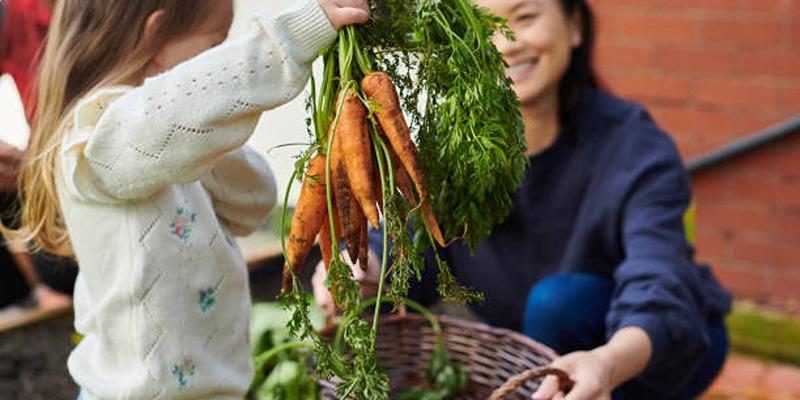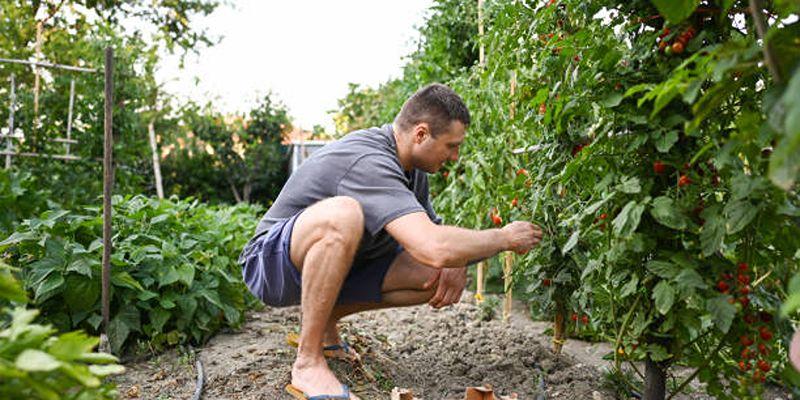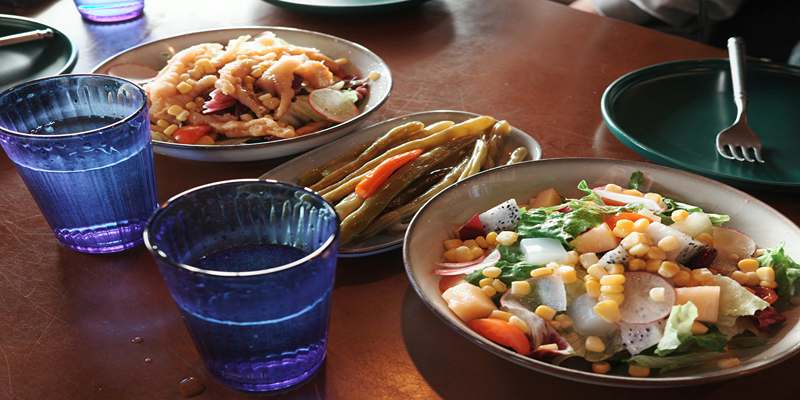Backyard gardening is a rewarding way to enhance your health while staying connected to nature. By growing your own fruits, vegetables, or herbs, you ensure access to fresh, organic produce. It also reduces stress, promotes physical activity, and fosters environmental sustainability, making it a fulfilling and beneficial activity for people of all ages.
The Health Benefits of Backyard Gardening

1. Access to Fresh, Nutritious Produce
By growing your own food, you will have access to fresh and pesticide-free fruity and veggies coming straight right from your own garden. The fruits and vegetables from the store can lose essential nutrients while being shipped and stored which can spoil their taste and nutritional value. By using homegrown crops, fruits and vegetables should be picked at the freshest time which will help maintain the most vitamins, minerals, and antioxidants. Besides, you can control every stage of your food’s development, ensuring that no chemical or fertilizers are used on it.
2. Encourages Physical Activity
Gardening is one way to take moderate exercise as it includes things like digging, planting, weeding and watering. Doing these actions increases flexibility, strengthen the muscles, and heart health. Regular gardening routines can sharpen hand-eye coordination and help you strengthen your fine motor skills. Gardening offers an enjoyable activity to stay busy but doesn’t look like a formal workout, and it is flexible to suit the needs of various fitness histories.
3. Reduces Stress and Boosts Mental Well-being
Relaxing in nature amidst greenspaces has the ability to reduce stress and cut anxiety. Caring for plants will help you to immerse yourself in nature and give your mind a break from the requirements of modern life and electronic devices. Dwelling on nurturing plants, and seeing them thrive, helps one feel self-fulfilled and purposeful, and emotionally healthy. There is accumulating evidence that soil microbes can be responsible for promoting serotonin release, a chemical which facilitates mood improvement.
4. Promotes a Sustainable Lifestyle
Growing your own food is a step toward a more sustainable and eco-friendly lifestyle. By relying less on store-bought produce, you reduce the demand for commercial farming, which often involves excessive use of packaging, pesticides, and long-distance transportation. Backyard gardening helps minimize your carbon footprint, allows you to compost food scraps and garden waste, and supports a circular, environmentally conscious way of living. Plus, it’s a great teaching opportunity for kids to learn about sustainability and where food comes from!
Getting Started with Backyard Gardening
1. Choose the Right Location
Choose a spot in your yard that gets 6-8 hours of sunlight each day, as most plants grow best in full sun. Watch how sunlight moves across your yard to find a consistently bright area. If you're short on space, try container gardening on a balcony, patio, or sunny windowsill. Containers are flexible and can be easily moved to stay in the sun.
2. Prepare the Soil
Healthy soil is the foundation of a thriving garden. Test your soil’s pH using a simple home test kit or seek professional testing services to determine if adjustments are needed. Most plants prefer a slightly acidic to neutral pH (around 6.0-7.0). Enrich the soil by mixing in compost, aged manure, or organic matter to boost fertility, improve drainage, and encourage healthy root development. Loosen compacted soil to allow roots to spread easily.
3. Select Suitable Plants
Choosing the right plants for your skill level and environment is crucial for success. Beginners should start with easy-to-grow plants that require minimal maintenance, such as:
- Vegetables: Tomatoes, lettuce, carrots, radishes, and bell peppers are great starter crops. They grow quickly, allowing you to enjoy a rewarding harvest sooner.
- Herbs: Basil, mint, cilantro, parsley, and chives not only grow quickly but also add fresh flavor to your meals. Plus, many herbs thrive in small spaces or containers.
- Fruits: Strawberries, blueberries, and dwarf citrus trees (perfect for pots) are excellent choices for adding a sweet touch to your garden. Strawberries and blueberries also make great ground cover or container plants.
4. Water Wisely
Proper watering is one of the most important aspects of gardening. Overwatering can harm plants by drowning their roots, while underwatering can stress them and stunt their growth. Water deeply but less frequently to encourage strong root growth and healthier plants. Early morning is the best time to water, as it allows moisture to soak into the soil while minimizing evaporation. Use a drip system or watering can for better control, and avoid wetting the leaves to reduce the risk of disease.
5. Use Natural Pest Control
Protect your plants without relying on harmful chemical pesticides by using natural pest control methods. Introduce beneficial insects like ladybugs, lacewings, or praying mantises to your garden they'll naturally keep pests like aphids and caterpillars in check. You can also make DIY pest repellents, such as neem oil spray or a simple garlic and chili solution, which are effective and safe.
Regularly inspect your plants for signs of pests or diseases, and take action early before the problem spreads. Adding companion plants, like marigolds, can also help repel harmful insects while enhancing the beauty of your garden.
Maximizing Your Garden’s Potential
1. Companion Planting
Certain plants grow better together. For example:
- Tomatoes and basil improve each other’s flavor and repel pests.
- Carrots and onions deter pests when planted side by side.
2. Vertical Gardening for Small Spaces
If ground space is limited, use trellises, hanging baskets, or vertical planters to grow climbing plants like beans, cucumbers, and peas.
3. Seasonal Planting for Year-Round Harvest
Rotate crops based on seasons:
- Spring: Lettuce, spinach, peas
- Summer: Tomatoes, peppers, zucchini
- Fall: Kale, broccoli, carrots
- Winter (in mild climates): Garlic, onions, winter greens
4. Composting for Nutrient-Rich Soil
Turn kitchen scraps (vegetable peels, eggshells, coffee grounds) and yard waste into compost. This natural fertilizer enriches soil and reduces waste.
Common Mistakes to Avoid

New gardeners may face a learning curve, but avoiding these common pitfalls can ease the journey:
- Overwatering or underwatering: Learn the needs of each plant.
- Overcrowding plants: Give each species enough space for growth and airflow.
- Ignoring pest signs: Check regularly for insects or disease and act early.
- Skipping soil care: Replenish nutrients and compost between growing seasons.
Conclusion
Backyard gardening is more than just a hobby—it’s a pathway to healthier living, sustainability, and personal fulfillment. By growing your own food, you take control of your nutrition, reduce environmental impact, and enjoy the therapeutic benefits of nurturing life. Whether you’re a beginner or an experienced gardener, every small step toward cultivating your green space brings you closer to a fresher, more vibrant lifestyle.












